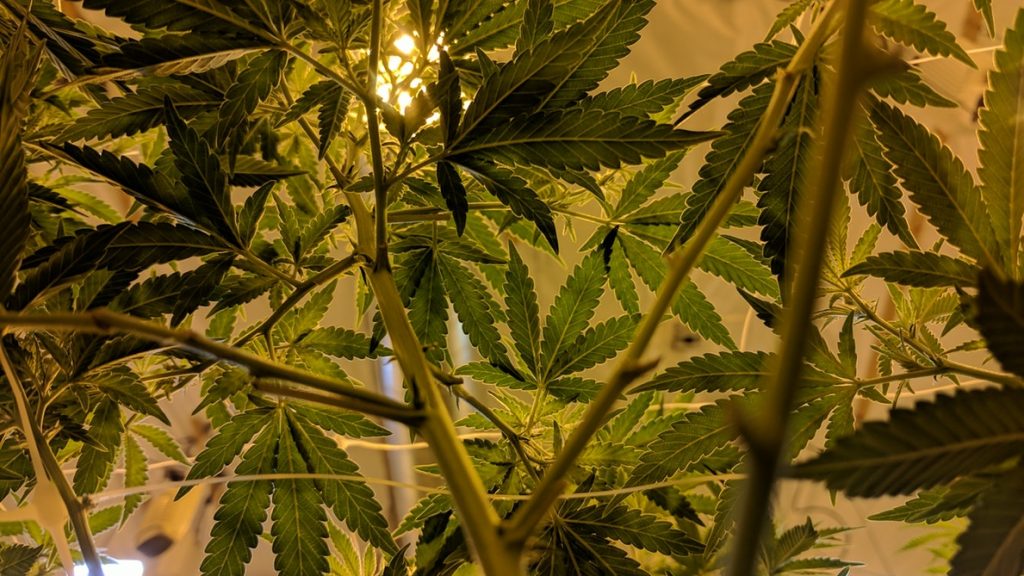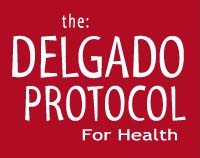Marijuana and Other Natural Remedies for Cancer
 As it stands today, a whopping of Americans will be diagnosed with cancer at some point in their lives, and close to 2 million Americans are diagnosed every year! The traditional treatment for cancer usually consists of a combination of chemo, radiation, drugs, and surgery. Unfortunately, the first three are highly toxic — they kill off healthy cells in your body, and they destroy your immune system; and all four treatments have an effectiveness rate that leaves something to be desired. Fortunately, medicinal marijuana, dietary tweaks, and 3 other powerful herbs can help reduce your risk for, and enhance your recovery from, cancer. They can also be used adjunctively with traditional cancer treatments in order to maximize the effectiveness of the treatment.
As it stands today, a whopping of Americans will be diagnosed with cancer at some point in their lives, and close to 2 million Americans are diagnosed every year! The traditional treatment for cancer usually consists of a combination of chemo, radiation, drugs, and surgery. Unfortunately, the first three are highly toxic — they kill off healthy cells in your body, and they destroy your immune system; and all four treatments have an effectiveness rate that leaves something to be desired. Fortunately, medicinal marijuana, dietary tweaks, and 3 other powerful herbs can help reduce your risk for, and enhance your recovery from, cancer. They can also be used adjunctively with traditional cancer treatments in order to maximize the effectiveness of the treatment.
Medical Marijuana Basics
There are numerous active compounds found in the cannabis (marijuana) plant but cannabidiol (CBD) and Tetrahydrocannabinol (THC) are the most medicinally recognized because they are present in the highest amounts. Although THC is the compound used in many commercially available cancer drugs, it is also the compound that is responsible for marijuana’s mind-altering effects, and is therefore not ideal for medical use. CBD, on the other hand, provides the same medicinal benefits without the sensation of being ‘high’. This discovery has garnered CBD a lot of attention among medical researchers in the past couple of years.
Cannabis for the Suppression of Cancer and Chemo Symptoms
Cannabis has natural analgesic properties, helping to reduce sensations of pain. When it comes to cancer however, it’s most well-known for its exceptional ability to reduce chemotherapy-related side-effects, with many users touting it as a ‘wonder drug’. It helps to markedly improve sleep and restore appetite; and to prevent depression, anxiety, nausea and vomiting. In contrast to traditional cancer drugs, cannabis is affordable and safe, and it does not produce any harmful side-effects.
Cannabis for Cancer Treatment and Prevention
 In addition to symptom management, cannabis may also enhance the efficacy of chemotherapy by increasing cell death, and unlike chemo it appears to do so without harming the healthy, normal cells. There are many reports that describe patients having remarkable responses to cannabis as an anticancer agent, particularly when taken as a high-potency orally consumed concentrate.
In addition to symptom management, cannabis may also enhance the efficacy of chemotherapy by increasing cell death, and unlike chemo it appears to do so without harming the healthy, normal cells. There are many reports that describe patients having remarkable responses to cannabis as an anticancer agent, particularly when taken as a high-potency orally consumed concentrate.
An increasing body of evidence suggests cannabis helps both fight and reduce the risk for cancer through the following 4 mechanisms:
Apoptosis: Lab studies show that cannabis kills cancer cells on contact
Anti-proliferation: Cannabis appears to stop cancer cells from growing and multiplying (proliferating)
Anti-Tumor: Animal studies found that cannabinoids may inhibit the growth and spread of tumors by blocking the development of blood vessels needed for tumors to grow
Anti-Inflammation: Cannabis has powerful anti-inflammatory properties which is beneficial because inflammation kills healthy cells and encourages the growth and proliferation of cancer cells and tumors
Current Cancer Therapy and Cannabis Laws
The U.S. Food and Drug Administration hasn’t approved cannabis yet as a treatment for cancer. However, there are commercially available cannabinoids such as dronabinol and nabilone, which are approved as drugs for the treatment of cancer-related side effects. More research needs to be done before cannabis and its various compounds are approved for the therapeutic intervention of cancer; and fortunately, there are countless studies underway. Due to its lack of psychotropic effects, CBD is likely to become a popular nutraceutical not only for cancer but for the treatment of a variety of diseases.
Additional All-Natural Recommendations for Cancer
What to Eat and Avoid
If you want to reduce your risk for cancer or help your body fight cancer, you should start by avoiding alcohol and cigarettes and consuming a whole-foods, plant-based diet. Sugar, vegetable oils, and animal products have many carcinogenic (cancer-causing) properties and should be vastly reduced, or eliminated completely.
The majority of your diet should be comprised of vegetables, legumes and fruits. Be sure to include cruciferous veggies (broccoli, cauliflower, Brussels sprouts etc.), leafy greens, and deep orange vegetables — they all contain powerful cancer-fighting compounds. The Simply Health Cookbook is an excellent tool to help you transition to this type of diet. It contains a diverse range of delicious, health-boosting, wholefood recipes, that are gluten and dairy-free: https://unitynaturals.com/product/simply-healthy-cookbook-softcover-2/
The Ketogenic Diet
If you currently have cancer, you may also want to consider following a ketogenic diet – which is a diet that is very low in carbohydrates, moderate in protein, and high in healthy fats. Emerging evidence suggests this type of diet may help treat various types of malignancies, and it may be particularly beneficial for the treatment of brain tumors. It also appears to improve the effectiveness of chemotherapy, to reduce tumor growth, and to enhance cancer survival rate. As always, you should talk to your physician before starting any new diet regime, especially if you are suffering with cancer or any other chronic disease.
Powerful Herbs
Turmeric, astragalus and garlic are 3 powerful cancer-fighting herbs. They help to fight inflammation, to block the growth of cancer cells, and to halt the activation of cancer-causing substances. They also boost your immune system which is critical for preventing and fighting cancer. Try consuming turmeric as a tea with honey, lemon, cinnamon and any non-dairy milk. Astragalus can also be consumed as a tea if you boil the root in water, or you can take it in supplement form. Finally, use garlic in your cooking; it’s an excellent additive in salads dressings, soups, stews, pastas, buttered squash, and most fish and meat dishes.
References
https://www.cancer.gov/about-cancer/understanding/statistics
http://www.cancer.org/acs/groups/content/@research/documents/document/acspc-042801.pdf
https://www.cancer.gov/about-cancer/treatment/cam/hp/cannabis-pdq https://www.ncbi.nlm.nih.gov/pubmed/27022315?dopt=Abstract
https://www.cancer.gov/about-cancer/treatment/cam/patient/cannabis-pdq#link/_13
http://jpet.aspetjournals.org/content/308/3/838
https://www.cancer.gov/about-cancer/treatment/cam/patient/cannabis-pdq#link/_13
https://www.ncbi.nlm.nih.gov/pmc/articles/PMC2803035/
http://www.cancervic.org.au/preventing-cancer/healthy-diet
https://www.ncbi.nlm.nih.gov/pmc/articles/PMC4215472/





